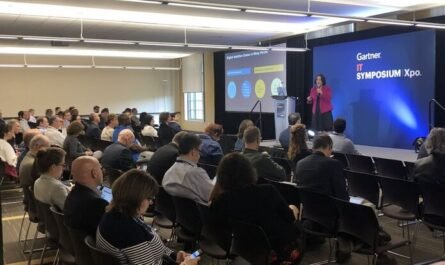
A new study by Salesforce underscores the growing importance of AI agents in restoring consumer trust, revealing significant opportunities for brands to regain loyalty through transparency and personalization. According to the research, nearly 60% of consumers express concerns about how businesses handle their personal data, highlighting a crucial area for improvement in building stronger relationships. The study finds that companies investing in AI-powered customer service and communication tools have a unique opportunity to foster trust and engagement in ways traditional customer service methods have struggled to achieve.
Salesforce’s latest findings, drawn from surveys and interviews with thousands of consumers globally, suggest that AI agents—automated systems designed to provide personalized service—are seen as more reliable and efficient by a growing number of consumers. However, trust remains a major barrier for many. A significant number of respondents revealed that while they are open to AI interactions, they demand clear, honest communication about how their data is used and shared. AI, when used effectively, has the potential to bridge this gap by offering tailored experiences that meet individual customer needs, improving satisfaction, and ultimately, loyalty.
The study also highlights a growing shift in consumer expectations. No longer is it sufficient for businesses to simply offer products or services—they must provide an experience that feels personalized and transparent. As the research notes, consumers are increasingly willing to engage with brands that provide clear insights into their data practices and offer choices that allow for more control over their interactions. Personalization, powered by AI, enables companies to deliver relevant content and recommendations that resonate with customers, driving higher engagement and, in turn, fostering trust.
The study emphasizes the role of transparency in consumer trust. The research reveals that consumers want to know how their data is being collected, stored, and utilized. Brands that are proactive in providing this information and that respect customer privacy are better positioned to build lasting relationships. AI agents, when programmed to explain the processes behind data usage and give customers more control over their information, are seen as a step in the right direction.
While the study points to these promising trends, it also acknowledges the challenges that come with implementing AI-powered solutions. Many consumers still harbor skepticism about automated systems, often fearing that AI lacks the empathy or human touch that traditional customer service can offer. The key to overcoming this barrier, the research suggests, lies in developing AI agents that can blend efficiency with a sense of personalization and empathy, reassuring customers that their concerns will be understood and addressed.
The Salesforce study also sheds light on the increasing role of generative AI technologies in enhancing customer service. As companies explore ways to integrate machine learning and natural language processing, AI agents have become more capable of understanding and responding to complex consumer needs. For businesses, this evolution presents both an opportunity and a challenge: to strike the right balance between automation and human interaction, ensuring that AI agents complement, rather than replace, human employees.
According to experts, the key to this balance lies in a hybrid model, where AI agents handle routine inquiries and tasks, freeing up human representatives to address more complex or emotional issues. This approach, supported by the Salesforce study, has been shown to improve efficiency while maintaining a high level of customer satisfaction. As businesses continue to embrace AI-driven solutions, they are finding new ways to provide customers with a seamless, personalized experience that aligns with their expectations for convenience and responsiveness.
The findings also suggest that businesses investing in AI technology stand to benefit from enhanced customer loyalty and higher retention rates. Companies that use AI to personalize their offerings, streamline their processes, and improve customer interactions have a distinct advantage in the competitive landscape. As consumer demands for personalized, transparent experiences grow, companies that fail to incorporate these elements risk falling behind.
The Salesforce report is a timely reminder of the ever-evolving nature of consumer expectations. With AI technology rapidly advancing, companies must act quickly to stay ahead of the curve, adopting practices that prioritize transparency and personalization in order to foster trust. The research underscores the importance of AI agents in shaping the future of customer engagement, offering a clear path for businesses to regain trust and loyalty.



